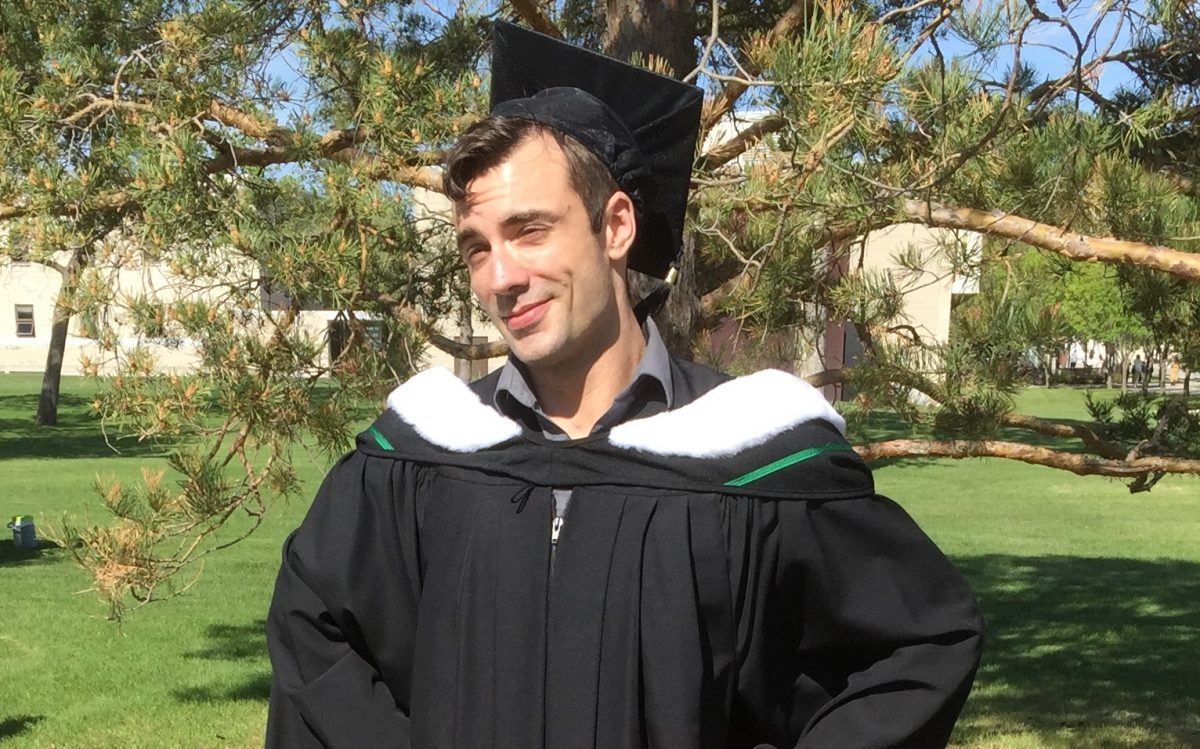
Student Success Month Spotlight: Tyler Kempe on leaving the workforce to pursue post-secondary studies
As part of Student Success Month, we are featuring UM students that have a story to tell about their experiences navigating the challenges of student life.
Tyler Kempe is a Masters student in Clinical Psychology. He was born in Thunder Bay, ON, but has lived in Winnipeg most of his life. He works as a writing tutor for the Academic Learning Centre.
Kempe spoke to UM Today about his decision to leave the workplace to pursue a graduate degree at the U of M.
WHAT ARE SOME OF THE CHANGES OR RISKS YOU HAVE TAKEN THAT YOU ARE GLAD YOU TOOK?
Going back to school was a big risk for me. I started university in my late twenties, having been in the work force for some time. All my friends were starting families, settling into their career paths and here I was completely upending my life. I didn’t know the first thing about university, I just knew I wanted to become a clinical psychologist – even if it meant dedicating over a decade of my life to schooling and living with minimal income until I got there. I went all in knowing I had no planned recourse. Now I’m enrolled in the program I risked everything to get into and I couldn’t be more excited.
WE ALL HAVE UNCERTAINTIES ABOUT OUR FUTURE. WHAT IS YOUR TIP OR TRICK FOR HANDLING THE UNKNOWN?
There are two tricks I find effective in reducing any anxieties about the future. I either think about times where things were incredibly difficult and remind myself how I overcame those obstacles, or envision the worst possible outcome coming to fruition and think about how I would overcome that situation. Both pertain to realizing that no matter how bad something goes, I’m going to be okay. I will adapt and survive, and even if it all falls apart, I’m capable of recuperating. I find this frees my mind to think about the task at hand and be less distracted by imagining outcomes that only reduce my performance.
CAN YOU SHARE AN EXAMPLE OF A TIME SOMETHING UNPLANNED OR UNEXPECTED HAPPENED DURING YOUR STUDIES? HOW DID YOU HANDLE IT?
I did poorly on a statistics test in my honours program which made me feel terrible. In order to handle it, I drew from the research my advisor Dr. Raymond Perry does. Instead of thinking I did poorly because I was just not cut out for statistics, I shifted my thoughts and realized my study strategy was to blame. As a result, I completely changed my strategy for studying for the next stats test and did way better.
WHAT HELPS YOU BALANCE ALL THE ASPECTS OF YOUR LIFE AS A UNIVERSITY STUDENT?
The most effective tool to keep me on track in any domain is making lists with time limited tasks first thing in the morning. There’s something called Parkinson’s Law which states that work fills the time it’s allotted. So, if I have one thing to do, and all evening to do it, it will take all evening. However, if I give it a time restriction, say two hours, it will likely be completed in that time or at least not take all evening. I think anyone can relate to this whole “tasks being drawn out” phenomenon, and this strategy counters it marvelously. With respects to making lists in the morning, I find this helps orient me towards tasks and goals right off the bat and I’m less likely to procrastinate.
WHAT DO YOU FIND MOST EXCITING WHEN YOU THINK OF THE FUTURE?
I’m most excited about becoming a research-practitioner as – in my opinion – it’s the most interesting and gratifying career one can have. As a practitioner, I will get to help people overcome negative situations in their lives. As a researcher, I get to further humanity’s knowledge on what things lead to mental illnesses as well as create and test technologies that help people. Overall, I look forward to a career that’s intellectually stimulating, challenging and still has some room to be creative!
This article is an initiative of Student Success Month, which takes place in October. For a calendar of events, click here.
This series of interviews is inspired by McMaster University’s Planned Happenstance Project.






